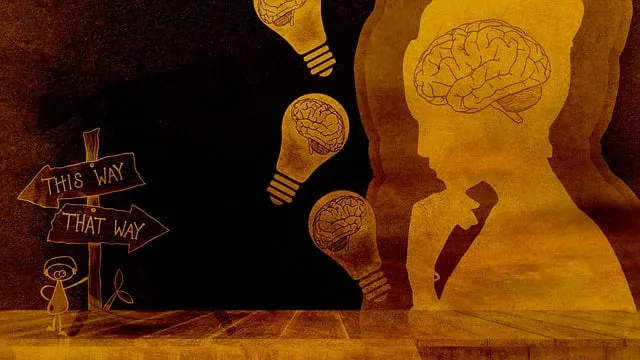Kaiser Permanente's comprehensive training programs in Centennial, focusing on conflict resolution, mental health policy, and stress management, equip healthcare professionals to deliver tailored trauma support. These initiatives, including self-care practices and peer support groups, enhance emotional well-being, reduce depression, and foster resilience among trauma survivors. Through public awareness campaigns, mental health education, and community partnerships, Kaiser Permanente ensures access to holistic resources, promoting overall community well-being and effective trauma care.
“In a world where trauma is an all-too-common experience, the provision of effective support services is paramount. This article delves into the critical role that specialized training plays in empowering individuals and communities to heal. We explore Kaiser Permanente’s innovative approach to training programs in Centennial, highlighting their impact on resilience. By examining comprehensive training methods and community resource integration, we uncover strategies to enhance trauma support services, ensuring better outcomes for those affected.”
- Understanding Trauma and Its Impact: A Necessary Foundation for Support Services
- Kaiser Permanente's Approach to Training Programs in Centennial: Unlocking Resilience
- The Role of Comprehensive Training in Enhancing Trauma Support Services
- Integrating Training with Community Resources: Strategies for Effective Provision
Understanding Trauma and Its Impact: A Necessary Foundation for Support Services

Understanding trauma is a fundamental step in establishing effective support services. Trauma, often defined as a deeply distressing or disruptive event, can have long-lasting effects on an individual’s mental and physical well-being. It’s essential to recognize that trauma manifests differently in everyone, from psychological responses like anxiety and depression to physiological reactions such as heightened stress levels and chronic pain.
Kaiser Permanente training programs, focusing on areas including Conflict Resolution Techniques, Mental Health Policy Analysis and Advocacy, and Stress Management, play a crucial role in equipping healthcare professionals with the necessary skills to support individuals affected by trauma. These initiatives ensure that services are tailored to meet diverse needs, fostering an environment of healing and recovery. By centring trauma-informed care within their practices, organizations like Kaiser Permanente contribute significantly to improving overall mental health outcomes.
Kaiser Permanente's Approach to Training Programs in Centennial: Unlocking Resilience

Kaiser Permanente, a leading healthcare organization, has been making significant strides in trauma support services provision, particularly through its innovative training programs in Centennial. These programs focus on equipping individuals with effective self-care practices and confidence-boosting strategies to navigate life’s challenges. By integrating these initiatives, Kaiser Permanente aims to prevent depression and promote resilience among those who have experienced trauma.
The approach emphasizes holistic well-being, teaching participants practical techniques to manage stress, regulate emotions, and foster a sense of empowerment. Through interactive workshops, educational seminars, and peer support groups, the Centennial community benefits from enhanced access to resources that address emotional health. Kaiser Permanente’s commitment to these training programs underscores its vision for creating a supportive environment where individuals can unlock their resilience and thrive despite facing traumatic experiences.
The Role of Comprehensive Training in Enhancing Trauma Support Services

Comprehensive training programs are instrumental in enhancing trauma support services. Kaiser Permanente training initiatives, such as those in Centennial, have been pivotal in equipping professionals across various sectors with the necessary tools to address traumatic experiences effectively. These programs often include Stress Management Workshops designed to improve coping mechanisms and resilience among individuals who have experienced trauma. By fostering a deeper understanding of trauma’s impact on mental health, these workshops enable support service providers to offer more nuanced and compassionate care.
In addition to internal training, Public Awareness Campaigns Development and Mental Health Education Programs Design play a crucial role in broadening the reach of trauma support services. Educating the public about trauma-informed practices promotes a culture of understanding and empathy, while well-designed mental health education programs help dispel myths and reduce stigma associated with seeking help. Collectively, these initiatives ensure that individuals experiencing trauma have access to comprehensive resources and supportive networks, ultimately enhancing overall community well-being.
Integrating Training with Community Resources: Strategies for Effective Provision

Integrating training with community resources is a powerful strategy for enhancing trauma support services provision. Organizations like Kaiser Permanente Centennial have pioneered innovative programs that combine comprehensive emotional intelligence training with access to local community resources. This approach ensures that individuals not only gain valuable skills in managing and overcoming trauma but also connect with supportive networks within their communities. By fostering a sense of belonging and empowering individuals with inner strength development, these integrated training programs facilitate more effective emotional healing processes.
Such initiatives involve collaborative partnerships between healthcare providers, local non-profit organizations, and community leaders to create holistic support systems. This strategic integration leverages the expertise of diverse stakeholders, resulting in a more responsive and inclusive trauma care model. Through tailored training sessions and targeted resource allocation, communities can better address the complex needs of individuals affected by trauma, ultimately enhancing overall well-being and resilience.
Trauma support services, as highlighted by Kaiser Permanente’s innovative training programs in Centennial, are evolving through comprehensive education and community integration. By understanding trauma’s profound impact, implementing effective training, and leveraging local resources, we can unlock resilience and provide more impactful care. These strategies, grounded in evidence and practice, ensure that individuals affected by trauma receive the support they need to heal and thrive.






